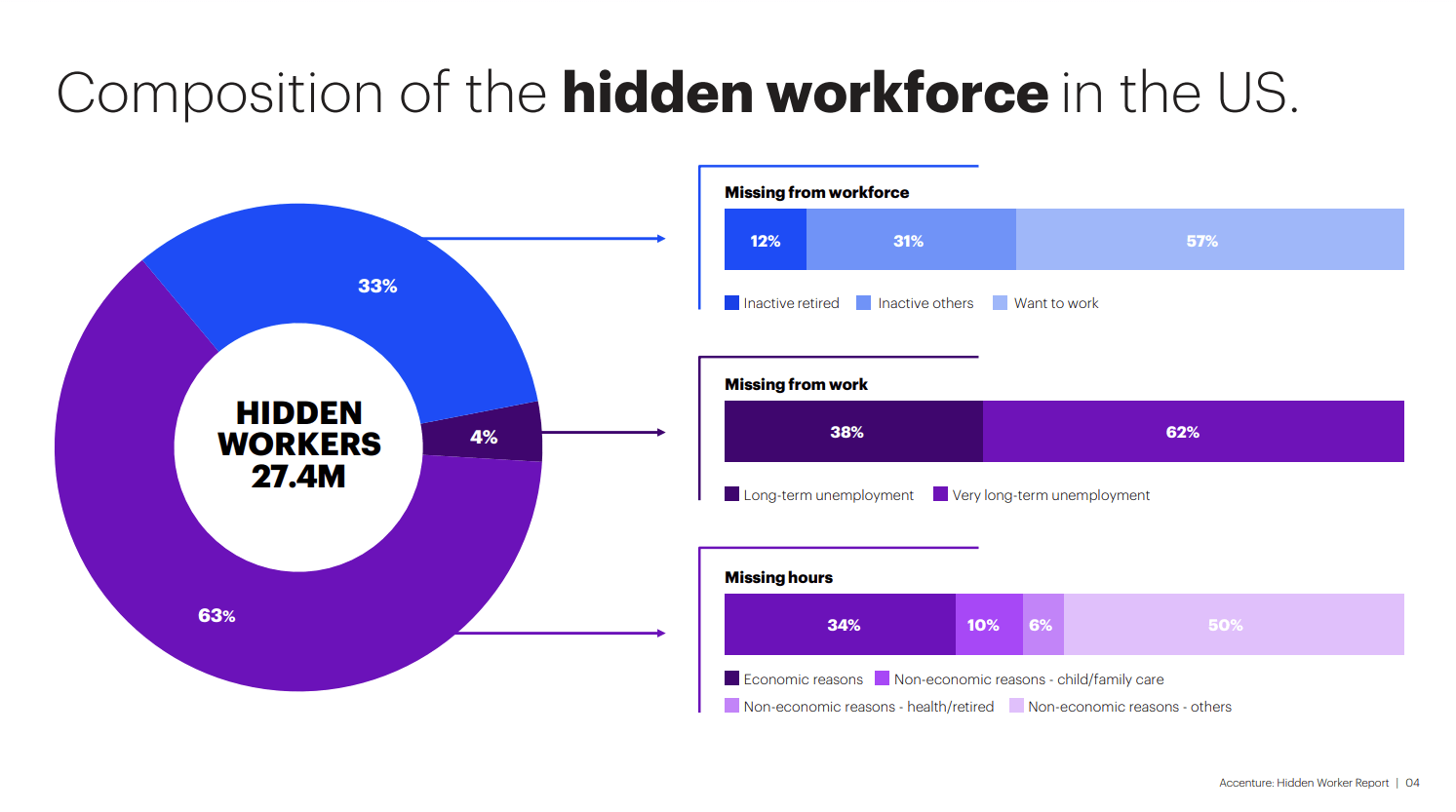This article was authored by Rachelle Chapman, Senior Manager Strategic Partnerships and Military Liaison, Adecco Group US Foundation
Accenture recently released research showing that “hidden workers” are eager and able to work but are often overlooked. In my view, a prime example of hidden workers is military spouses and veterans.

Military spouses, especially, are a huge untapped pool of talent. I should know, because I am one. I’ve worked for the Adecco Group in North America throughout my partner’s active-duty military service – which has involved moving seven times, being stationed overseas twice, and raising two kids.
Many military spouses aren’t lucky enough to have such supportive employers – or indeed, any employer at all. The unemployment rate among military spouses is far higher than for workers at large: in the U.S., it's four to six times the national average
Even worse is the rate of underemployment – that’s people who aren’t working as much as they would like to, or making proper use of their skills. As many as 63% of military spouses say that applies to them.
Military spouses are just as - if not more - educated than their non-military peers, but they are paid much less – on average, they earn 38% lower wages.
Of course, not all military spouses want to work. But sometimes they need to: an estimated 160,000 military families experienced difficulty putting food on the table in 2020, according to Feeding America. And I know from experience that it’s typically about much more than that. It’s about wanting a personal and professional sense of fulfilment.
Skills to conquer obstacles
According to research by Hiring Our Heroes and Burning Glass Technologies, nearly two in five military spouses are so discouraged by the obstacles to finding work for themselves that they’ve discussed wanting their partner to leave active-duty military service.
What are those obstacles? I’ve mentioned one already – the seven times I’ve moved. Typically a military family moves to a new location every two or three years. Employers worry that if they take on a military spouse, they won’t stay with the company. But post-pandemic, this is becoming less of an issue for many roles. It’s estimated that around a quarter of professional jobs in North America will still involve working from home in 2022 and that number is expected to increase through 2023.
Another common hiring bias comes from many recruiters being put off by military spouses’ resumes, which typically involve chunks of time without work or jumps from one industry to another.
Employers are missing out on great candidates. If you read any military spouse’s resume looking at their skill set as a whole, rather than expecting a timeline of career progression, you’ll start to see their potential. And consider also their soft skills and ability to learn.
Being a military spouse, it’s practically inevitable that they'll have a wide range of skills that employers want. Moving every couple of years, they have to deal with logistical challenges as well as establishing a community in their new home. Military spouses are resilient, resourceful, adaptable, and nimble.
Bridging the gap
For veterans, the issues in job hunting can be different – but they are no less likely to lead to employers missing out on the talent they’re seeking.
Veterans’ resumes are often full of military jargon, which makes it hard for recruiters to understand how their technical skills translate to civilian roles. But they do: approximately 85% of the jobs that exist in the military also exist in the civilian workforce. You can use this tool to see how job titles compare.
And don’t overlook the soft skills veterans develop during their time in service. Typically, employers of veterans remark that they are dependable, professional, comfortable with dynamic environments, and quick to learn.
However, when veterans who have recently left the military meet civilian hiring managers, there can be a culture shock on both sides. Veterans, for example, are taught “comm brevity” – use as few words as possible. This often throws hiring managers, who think it indicates lack of enthusiasm.
Meanwhile veterans are sometimes shocked by how little civilians understand about the military. It's inappropriate to ask things like “have you fought in combat?” or “do you have PTSD?”
So to make sure you’re not alienating veterans who would actually be a great hire, take a while to educate yourself about military culture. This short video is a great place to start.
And if you want to explore more advice for finding hidden talent among veterans and military spouses, check out our new short white paper. It’s based on the experience of the Adecco Group’s Military Alliance program in the US, which this year proudly celebrates its 20th anniversary.
Over those 20 years, we’ve hired over 100,000 veterans and military spouses. We know that the talent is there if you look for it.



